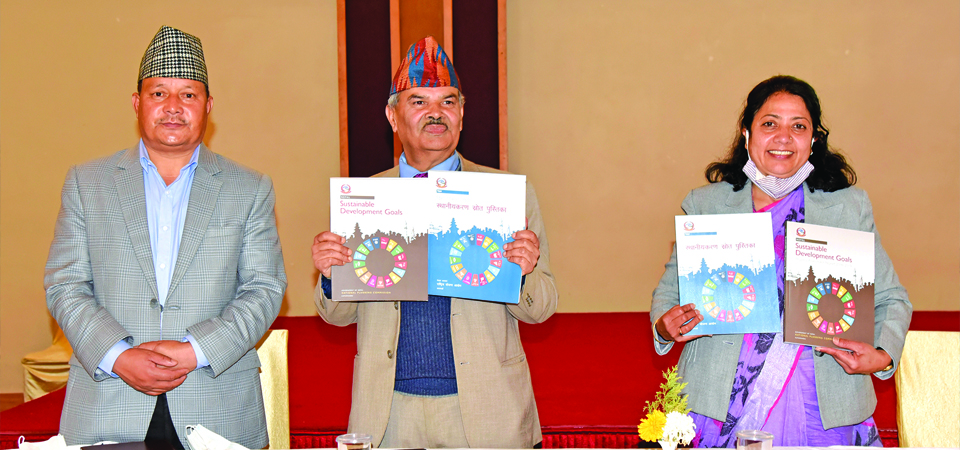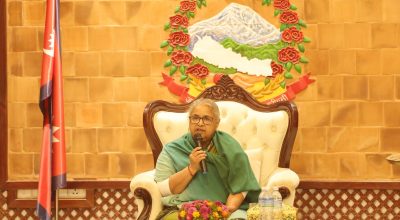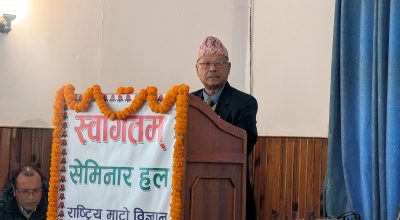
KATHMANDU: The novel coronavirus (COVID-19) pandemic could reverse the positive trends in ending poverty, health, education and economic growth, according to the National Planning Commission.
In its Sustainable Development Goals: Progress assessment report 2016-2019, the Commission said that the pandemic has the potential of reversing the progress made in most of the SDGs – the 2030 agenda of development.
“The pandemic has the potential of not only delaying but effectively reversing the positive trends in most SDGs particularly ending poverty, zero hunger, healthy lives, quality education, decent work and economic growth, reducing inequalities and partnership for sustainable development,” NPC report concludes. There are 17 SDGs to be achieved by 2030.
The report was jointly launched by Vice Chairman of the NPC Prof. Dr. Pushpa Raj Kandel and member of the National Assembly Dr. Bimala Rai Poudel at a programme in Lalitpur on Sunday.
Although the report talked about the situation before the coronavirus scenario, it significantly noted that there had been enormous consequences for livelihoods, mobility, infrastructure and essential services. “It is therefore essential to realign strategies for the attainment of SDGs and fine-tune targets to reflect the new normal,” it said.
However, Dr. Kandel said that the impact of the pandemic was moderate on the economy and development as the economic activities had taken up better than expected. He stated that the NPC was devising a rehabilitation strategy to revive the economy in the post pandemic scenario.
According to the report, a total of 169 targets and 479 indicators were adapted in Nepal to monitor the SDG progress but data are available for only 104 targets and 218 indicators which means that there is no information available for 35 per cent of the targets and 55 per cent of the indicators.Required data is also not available for the important parameters on water quality, water use efficiency and protection of water-related ecosystems, youth employment and underemployment, and urban infrastructure and green spaces.
“The data gap that exists is significant and may even be indicative of the fact that the initial enthusiasm with respect to the national commitment to their integration in the process of planning and development has given away to quiet complacency in implementation,” read the report.
However, the report portrayed a mixed situation on SDGs progress in the first three years of implementation (2016-2019).
There has been a steady decline in levels of poverty nationwide, although regional and ethnic differences continue to exist. Population living below US$1.9 a day is 15 per cent, noted the report.
Although there has been progress in school enrolment at the primary level with 97.2 per cent and ratio of girls to boys and primary completion rate is 89.5 per cent, the achievements are below the expectations.
Likewise, only 21 per cent of the population has access to safe drinking water although basic water supply coverage is 88 per cent. However, there was a significant progress in sanitation with 85 per cent of the population using toilets.
The report said that the share of squatter population remains low and households living in safe houses have improved.
















